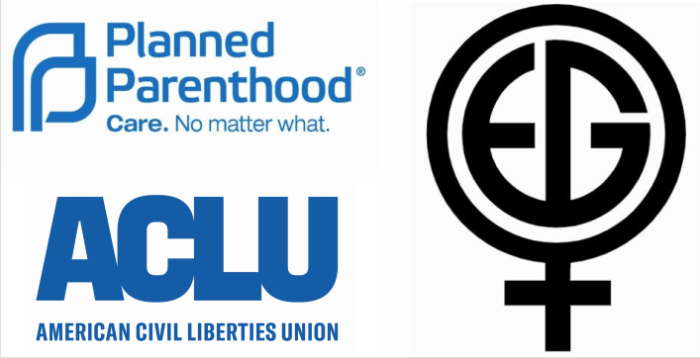Polk County District Court Judge Michael Huppert has granted a temporary injunction to prevent Iowa’s near-total ban on abortion from going into effect on July 1. Attorneys from the Thomas More Society, a conservative Chicago law firm representing the state pro bono, did not object to the injunction at today’s hearing, Stephen Gruber-Miller reported for the Des Moines Register.
Senate File 359 outlaws almost all abortions after a fetal heartbeat can be detected, with very few exceptions. Planned Parenthood of the Heartland, the American Civil Liberties Union of Iowa, and the Emma Goldman Clinic filed suit last month, citing three ways in which the law violates rights guaranteed under the Iowa Constitution.
Advocates for the law have expressed hope that the case could eventually prompt the U.S. Supreme Court to overturn the 1973 Roe v Wade decision. Plaintiffs structured the case to keep the litigation in state court, because if the Iowa Supreme Court finds the state constitution protects a woman’s right to terminate a pregnancy, there will be no path to appeal in federal courts. UPDATE: To clarify, some cases filed in state court can be appealed to federal courts. However, all claims in this lawsuit are grounded in alleged violations of the Iowa Constitution: specifically, due process rights, “inalienable rights of persons to liberty, safety, and happiness,” and equal protection. Plaintiffs are not claiming the abortion ban violates any rights guaranteed under the U.S. Constitution.
This law will never be enforced, because it is obviously unconstitutional. Some readers have asked whether the case might be resolved before the November election. That’s extraordinarily unlikely. A timeline of events in Iowa’s last legal battle over abortion rights suggests it could be years before the Iowa Supreme Court decides this case.
June 2013: A group petitions the Iowa Board of Medicine to adopt an administrative rule requiring a doctor to be physically present and conduct a physical examination of a pregnant woman before providing abortifacient medications.
August 2013: Majority of Iowa Board of Medicine votes to adopt a rule with language taken “nearly word for word” from the petition.
September 2013: Rule banning the use of telemedicine for abortion, but not for any other medical services, goes into effect. Within days, Planned Parenthood of the Heartland files suit in Polk County District Court.
November 2013: District Court Judge Karen Romano grants a temporary injunction against the administrative rule, noting that although the Board of Medicine claimed the rule was designed to “protect the health and safety of patients,” “Respondents have not supplied the Court with any evidence whatsoever that telemedicine abortions are unsafe or negatively impact patient health.”
August 2014: District Court Judge Jeffrey Farrell upholds the administrative rule, writing that requiring an in-person exam before prescribing mifepristone was “precisely within the expertise of the Board of Medicine and not one to be decided by the court.” The ruling rejects Planned Parenthood’s claim that prohibiting telemedicine abortions would place an “undue burden” on women in rural areas, who would have to travel longer distances for care and in some cases might require a surgical abortion after the window for medical abortion has closed.
August 2014: Planned Parenthood of the Heartland appeals the District Court decision, saying the administrative rule “drastically reduces access to abortion and jeopardizes women’s health.” The appeal notes that the rule “singles out abortion, banning telemedicine delivery of this service” even though the Board of Medicine has encouraged “other uses of telemedicine.”
September 2014: Iowa Supreme Court stays the administrative rule, pending appeal.
March 2015: Iowa Supreme Court hears oral arguments in the telemedicine case.
June 2015: Iowa Supreme Court unanimously strikes down the administrative rule, finding it fails the “undue burden” test the U.S. Supreme Court established in the 1992 Casey decision. The court declines to consider whether the Iowa Constitution includes stronger protection than the federal constitution of a woman’s right to terminate a pregnancy. Governor Terry Branstad floats the idea of an appeal, but the Iowa Attorney General’s office explains there are no grounds to take the case to federal court.
July 2015: Board of Medicine declines to rule out appealing the Iowa Supreme Court ruling, despite the lack of legal justification to do so.
August 2015: Board of Medicine finally rules out appeal; Branstad accepts their decision.
The demise of the fetal heartbeat bill will probably happen in late 2019 or 2020.
Note: Justice Bruce Zager will retire from the Iowa Supreme Court in September, allowing Governor Kim Reynolds to name his replacement. But that change is unlikely to affect the outcome of this litigation. Even if Reynolds appoints a hardline conservative willing to overturn decades of precedent, the six justices who joined the telemedicine decision will remain on the high court. Incidentally, Zager recused himself from the 2015 abortion case, because his daughter was a law partner of one of the presenting attorneys.
For those interested in the politics of the abortion ban, I discussed how the new law made it through the Iowa legislature in this post and on the Lush Left Podcast hosted by David Slavick and Mary Angela Perna.
Final point: A reader wondered whether it could be a violation of separation of church and state for a non-profit, tax-exempt, Catholic organization to defend Iowa’s new law in court. I inquired with the Iowa Attorney General’s office. Communications director Lynn Hicks commented, “Obviously, we don’t see any violation. […] Thomas More is a public interest law firm. I don’t know of anything in the statute that restricts who the state can hire/authorize the appointment of.”

